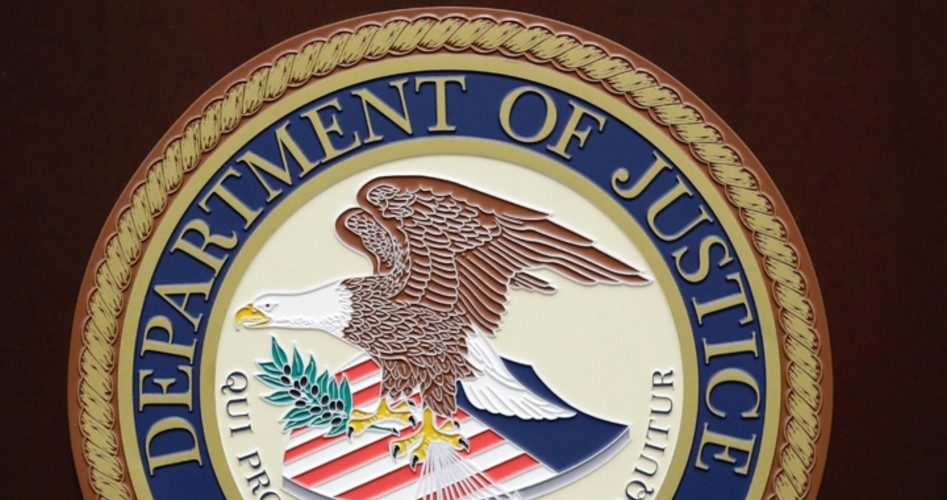
Officials and attorneys for the Justice Department filed an amicus brief on July 26 saying that the “court should reaffirm its settled precedent holding, consistent with the longstanding position of the Department of Justice, that Title VII [of the Civil Rights Act of 1964] does not reach discrimination based on sexual orientation.”
The Justice Department filed the brief in the U.S. Court of Appeals for the Second Circuit in the case of Zarda v. Altitude Express.
Donald Zarda was a skydiving instructor who said he was fired by Altitude Express after disclosing his sexual orientation to a customer. In 2010 Donald Zarda filed suit against his Altitude Express in the U.S. District Court for the Eastern District of New York, alleging that the company terminated him for his sexual orientation. The suit claimed that this was a violation of Title VII.
Zarda died in a skydiving accident before the case went to trial, and executors of his estate, Melissa Zarda and William Allen Moore, Jr., have continued the lawsuit on behalf of his estate.
After the district court ruled against it, Altitude Express appealed and the Second Circuit court invited outside parties to weigh in. Zarda v. Altitude Express is now before a full panel of judges at the court.
In its introduction, the DOJ brief clearly defined the issue, stating:
This case presents the question whether, under Title VII of the Civil Rights Act of 1964, the statute’s prohibitions on employment discrimination because of sex include discrimination because of sexual orientation.
The brief went on to explain why it was filing an amicus brief in support of Altiitude Express:
The United States thus has a substantial and unique interest in the proper interpretation of Title VII. Although the Equal Employment Opportunity Commission (EEOC) enforces Title VII against private employers, 42 U.S.C. 2000e5(f)(1), and it has filed an amicus brief in support of the employee here, the EEOC is not speaking for the United States and its position about the scope of Title VII is entitled to no deference beyond its power to persuade.
In short, although the EEOC may be charged with enforcing Title VII against private employers, is not authorized to make a determination on behalf of the federal government about the proper scope of Title VII.
The brief went on to state:
The sole question here is whether, as a matter of law, Title VII reaches sexual orientation discrimination. It does not, as has been settled for decades. Any efforts to amend Title VII’s scope should be directed to Congress rather than the courts.
To document its position, the brief provided a brief history of the Civil Rights Act of 1964 and its language prohibiting discrimination on account of sex. It noted that Title VII of the Act prohibits private employers from discriminating against an individual “because of,” among other protected traits, “such individual’s … sex.” However, noted the brief, Congress never defined the term “sex” when it enacted these antidiscrimination provisions. In fact, “sex” was added as a protected trait in a floor amendment at the last minute, just before the House passed the 1964 bill.
In 1978, in response to a Supreme Court decision that said Title VII’s prohibition on discrimination because of sex did not cover an employer’s exclusion of pregnancy from coverage under a disability-benefits plan, Congress amended the act to include discrimination “because of or on the basis of pregnancy, childbirth, or related medical conditions.”
In 1991, Congress further amended Title VII when it passed the Civil Rights Act of 1991. If Congress had meant to ban discrimination because of sexual orientation, that would have been the perfect opportunity to do so. But it did not. As the brief noted:
By that time, several courts of appeals had held that Title VII does not prohibit sexual orientation discrimination, and no court of appeals had held otherwise. Against the backdrop of that precedent, Congress neither added sexual orientation as a protected trait nor defined discrimination on the basis of sex to include sexual orientation discrimination — notwithstanding that Congress amended the provisions concerning sex discrimination in other respects and overruled numerous other judicial precedents with which it disagreed. In fact, every Congress from 1974 to the present has declined to enact proposed legislation that would prohibit discrimination in employment based on sexual orientation.
The preceding history of the Civil Rights Act and Title VII clearly demonstrates the intent of Congress in passing the legislation. As such, the brief’s statement, “Any efforts to amend Title VII’s scope should be directed to Congress rather than the courts,” should carry substantial weight.
Sometimes, however, judges are not content to apply the law and prefer to rewrite the law. One such example was revealed in an April 5 article posted by The New American, “Rogue Judges Claim ‘LGBT’ Discrimination Protected by Civil Rights Law.”
The article quoted from an NBC News report on the case that stated: “The decision, from the Seventh Circuit Court of Appeals in Chicago said ‘discrimination on the basis of sexual orientation is a form of sex discrimination.’”
NBC News correctly reported, “Federal law forbids workplace discrimination on the basis of race, color, religion, sex, or national origin, but it does not…mention sexual orientation, and the U.S. Supreme Court has never ruled on the issue.”
One would think that would settle matter, but the Seventh Circuit Court of Appeals thought otherwise. Said the court, in an 8-3 decision, “it would require considerable calisthenics to remove the ‘sex’ from ‘sexual orientation.’”
But as The New American’s Selwyn Duke observed:
Actually, it required incredible intellectual calisthenics to put it in there.
Obviously, “sex” in the civil-rights law refers to the biological reality of being male or female, not to a lustful inclination or activity. Conflating these two things does mean the Seventh Circuit managed to remove something else, however: “judge” from judgment.
Photo: AP Images
Related article:
Rogue Judges Claim “LGBT” Discrimination Protected by Civil Rights Law



